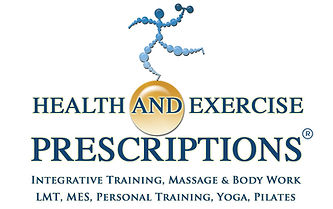Are you stressed?
Most people don’t understand stress and stress chemicals and the implications it has on their body. First let’s break the body into two units of function: Sympathetic (fight or flight response) and parasympathetic (recovery and healing).
The sympathetic and parasympathetic units of the autonomic nervous system have been evolving for thousands of years to help keep our genes alive and balance all of our body’s systems without you consciously knowing it.
The parasympathetic branch originates from the cranial nerves (behind your head) and the sacral nerves (your tail bone).
The sympathetic branch originates in the cervical( neck) thoracic (mid back) and lumbar nerves (low back) .
They both attach to a number of organs where they have the opposite effects. The sympathetic branch (fight or flight system) stimulates the organ into a higher state of activity while the parasympathetic (recovery and healing) branch lowers these levels of activity to rest and repair.
Next, let’s talk about some of the stress chemicals, Corticotrophin,and adrenocorticotropic which are adrenaline and cortisol respectively. These chemicals are released during the stress response. These chemicals trigger a wide range of physiological events preparing the body for an emergency response (fight or flight).
Cortisol effects the body tissue by promoting the break down of proteins in the body and acts as an anti-inflammatory agent and is also an anti-allergenic action.
Adrenaline is epinephrine and is secreted by the ends of the sympathetic nerve; it prevents the parasympathetic nerve its ability to rest and restore. A number of events take place with more adrenaline; it heightens muscle tone and reflexes so you are ready to react and it also increases breathing heart rate and blood pressure so your body is ready for action.
As you can see, being in this high alert state all of the time can be very wearing on organ systems and hormones of the supporting sympathetic nervous systems.
Recognizing stress in your everyday life is very important. Some people have a very high thresh hold of dealing with stress, and have trouble recognizing it. For Example: a women age 35, new-born baby, married, promotion at work, multiple obligations to various organizations, no exercise, sporadic rest breaks, meal/snack times and this schedule is held 7 days a week. She said that she did not feel very stressed but, her eye’s where twitching and looked restless. She said she had trouble sleeping at night because she could not shut off her brain. It takes time to change old habits and you should apply some stress reducing interventions to reduce stress chemicals.
A good test for most people to recognize stress is when you are driving your car and someone cuts you off and then honks their horn at you.
How do you feel?
Feeling stress is generally the response from that type of stimulus, when the adrenals pump adrenalin into your blood stream to get ready for flight or flight. Your heart starts racing, your blood thickens, your blood vessels dilate and your palms are now moist from sweat. You are now on high alert. This is the signal(feeling) you need to recognize in your everyday life to help manage those stress hormones. When you feel that feeling of stress come on it is time to try and combat that feeling by taking deep breaths and or taking a break to calm your mind.
Most people have experienced stress/anxiety at some point in there lives and is part of living. Our modern living has made this response happen more often than in the past with Tv, cars, and busy go go go schedules. We have learned through modern technology to lower our bodily discomfort by having heated homes, a convenient water supply, easily accessible food and other modern luxuries. With that type of environment our stress response is more sensitive and our body’s tend to react to stress much more easily.
What does that mean to you?
People have to take responsibility for their health and educate them selves to have a greater understanding of the implications of stresses applied to the body whether it be mental or physical. Psychosomatic diseases (the mind can cause disease)are real and miss understood by the greater population which is very dangerous place to be if you are sick and stuck in a cycle of disease and pain.
I am going to list five conservative interventions that you can practice to help your body rest, restore and lower stress chemicals.
Exercising light to moderate is important to burn the stress chemicals go to www.healthandexerciseprescriptions.com
Journal to express your feelings
Meditation and breathing techniques to help learn to calm your mind. For a free demo cd click on the link at the bottom of this page
Stay positive, change your mind about how you feel .
Massage and acupuncture help calm your nervous system http://bellinghamacupunctureandwellness.com/
If you have any questions please contact me by e-mail healthybellingham@hotmail.com Thank you for your time and energy……Be well
Jaime J. Hernandez
Health and Exercise Prescriptions


